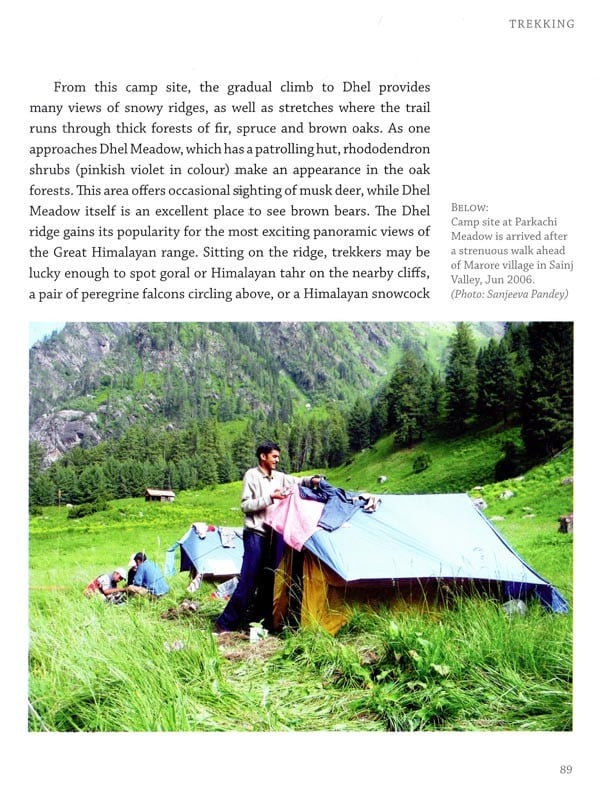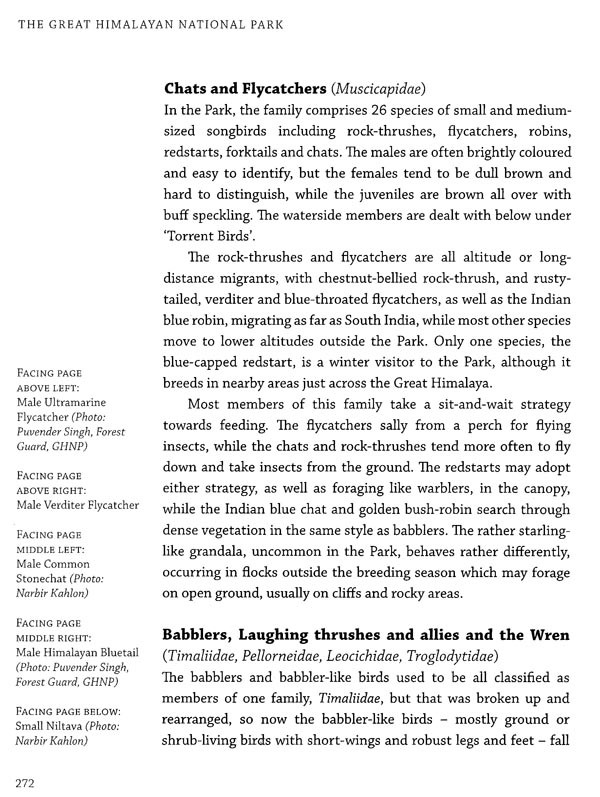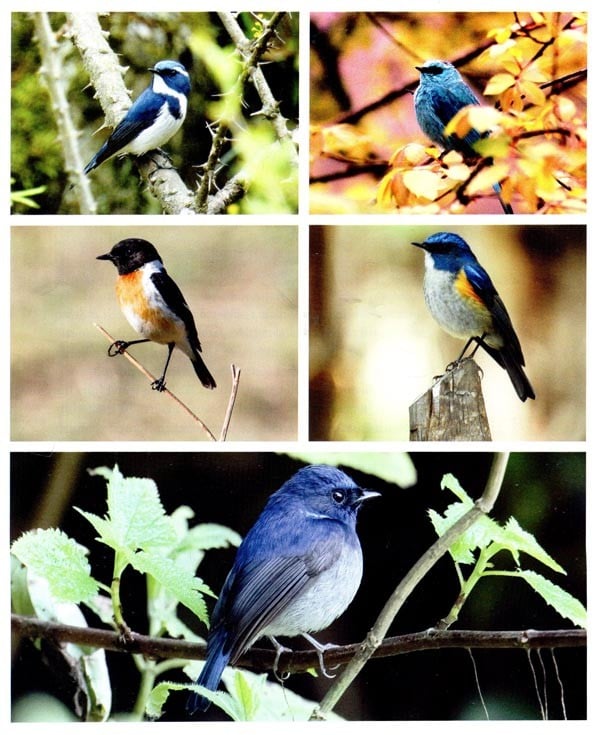
The Great Himalayan National Park- The Struggle to Save the Western Himalayas
Book Specification
| Item Code: | AZE897 |
| Author: | Sanjeeva Pandey and Anthony J. Gaston |
| Publisher: | NIYOGI BOOKS |
| Language: | ENGLISH |
| Edition: | 2019 |
| ISBN: | 9789386906717 |
| Pages: | 364 (Throughout Color Illustrations) |
| Cover: | HARDCOVER |
| Other Details | 9.00x7.00 inch |
| Weight | 970 gm |
Book Description
In addition to descriptions ecology, the book includes local and culture and a review current development in the region. The inscription Park into the UNESCO World Heritage in 2014 confirmed the Outstanding Values of the which the most important significant natural habitats conservation Himalayan biological diversity.
pictures, by authors and their collaborators, vividly illustrate grandeur diversity the area.
The book universal appeal to naturalists, resource managers, trekkers, arm-chair travellers. failure along road to creating today's Park discussed frankly management efforts and there numerous examples conservation action that will motivate generation naturalists and ecologists continue the fight protect the greatest mountains earth.
Anthony (Tony) Gaston has studied Indian wildlife, especially birds, since 1969, including research for his PhD (at Oxford University) around Delhi and in Kashmir, Himachal Pradesh, the Narmada Valley and Kerala. He headed the initial 1980 and 1983 Himachal Wildlife Project, consisting of international teams of scientists, who surveyed Himalayan front-range ecosystems throughout Himachal Pradesh and recommended the creation of GHNP in its present location. Subsequently, he played a major role in supporting GHNP and was involved in developing the application for World Heritage status. He has trekked extensively in the Park and throughout the Western Himalayas, and considers Himachal to be his spiritual home.
Later the same year, after my geological work was finished, I went to Manali with my partner, Anne-Marie, to escape the heat of Delhi. It was then a small, sleepy town with a large Tibetan bazaar and a scattering of guest houses. In those days, the Rohtang Pass, at the head of the valley, was as far as foreigners were allowed to go into the Indian Himalayas. I can vividly remember watching flocks of purple grandalas swirling against the sky while avalanches rumbled down the slopes of Beas Rishi and the high ridges stretching below the pass, before the motor-road had been completed. We stayed in a room heated by a one bar heater: It was very cold but the air was sharp and clear and the vistas dramatic fell in love with the Himalayas.
From 1970, Anne-Marie and 1 lived in Delhi and during the early 1970s we Imade several trips to the outer ranges in Himachal Pradesh, the area of hill stations' where the officials and soldiers of the British Raj fled in summers from the oppressive heat of the plains. Our commitment to the Himalayas was greatly influenced by a twist of fate in 1972 While we were travelling in South India, at Hampi, capital of the great 17th century Vijayanagara Empire, we met Penelope Chetwode, an Englishwoman whose father had been Commander-in-Chief of the Indian army near the end of the British Raj. In her married persona she was Mrs John Betjeman, wife of the British poet laureate of the time. Penelope had driven overland in a camper with a painter friend, John Nankivell, but was alone in Hampi. When she heard that we could not find any accommodation she invited us to spend the night in her van, while she slept in a nearby temple.
**Contents and Sample Pages**















